Angry Protesters Confront Spain's Foreclosure Policies
A Spanish activist group fighting against bank-ordered evictions has stepped up its protest activity and embraced law-breaking -- and sometimes violent -- methods to stop the physical removal of families from their homes. The intensification in tactics by activist groups Stop Desahucios, or Stop Evictions, and Plataforma de Afectados por la Hipoteca, Rally for Those Hurt by the Mortgage, two loosely organized off-shoots of the larger 15M movement against economic injustice in Spain, has followed the one-year anniversary of those groups' formation.
Recently, hundreds of members of the groups have responded to online calls to actions, setting up human barricades to prevent local sheriffs from entering the homes of foreclosed residents, scuffling with officers trying to push through to perform forced evictions, and dumping buckets of water and firecrackers on riot police officers called in to disperse them.
It's been a long way coming for the activists, who were originally a wonkier set within the 15M movement fighting to reform their country's strict foreclosure law. In Spain, unlike most other countries in the world, people who have their property repossessed are still legally obligated to pay a portion of their mortgage. In July 2011, the government modified the law to make the maximum amount homeowners can be liable for 40 percent of their unpaid debt, down from 50 percent. But that move only angered most Spaniards, who overwhelmingly support adopting a legal framework where people are not liable for any further debt after giving up the house.
Tapping into that anger, the activists have worked to help families facing eviction through different means: lobbying government agencies to place them in emergency public housing, protesting at banks in an attempt to shame them into stopping specific actions, standing outside houses while forced moves are taking place to heckle the police. But as those methods grew increasingly less effective, the activists have become more forceful, pushing back against officers of the law in specific cases, facing down rubber bullets and tear gas, and occupying empty properties. Generalized rage in Spain against the banking system, which has intensified since massive accounting fraud was discovered at giant Bankia in early June, prompting a multibillion-euro government bailout, has given the movement political cover.
A good example: A June 27 anti-eviction action in Oviedo, a medieval city in northern Spain, where activists barricaded doors leading to the home of Jorge Cordero, whom police were trying to evict for the second time this year. As groups scuffled with riot-control units and taunted government bureaucrats, yelling at them that they were evicting a family with a 5-month-old baby, two protesters on Cordero's balcony rained pyrotechnics, eggs and buckets of water on police below. Neighbors joined in with a cacerolada, a traditional form of protest in urban areas of Continental Europe where people bang pots and pans from their balconies and yell anti-government slogans.
Unfortunately for Cordero, neighbors' chants of I'd be ashamed to be police and Bankers to the paddywagons did not halt his eviction.
Indeed, it is not clear the government is backing down in the face of an angrier, larger anti-eviction movement. Since April, national lawmakers have been considering a measure that would, essentially, put organizers of Stop Desahucios actions in the same legal category as terrorist sympathisers and secessionists, thus allowing the government to limit their free speech rights. The bill would make sending an online invitation to block an eviction a crime punishable by up to two years in prison.
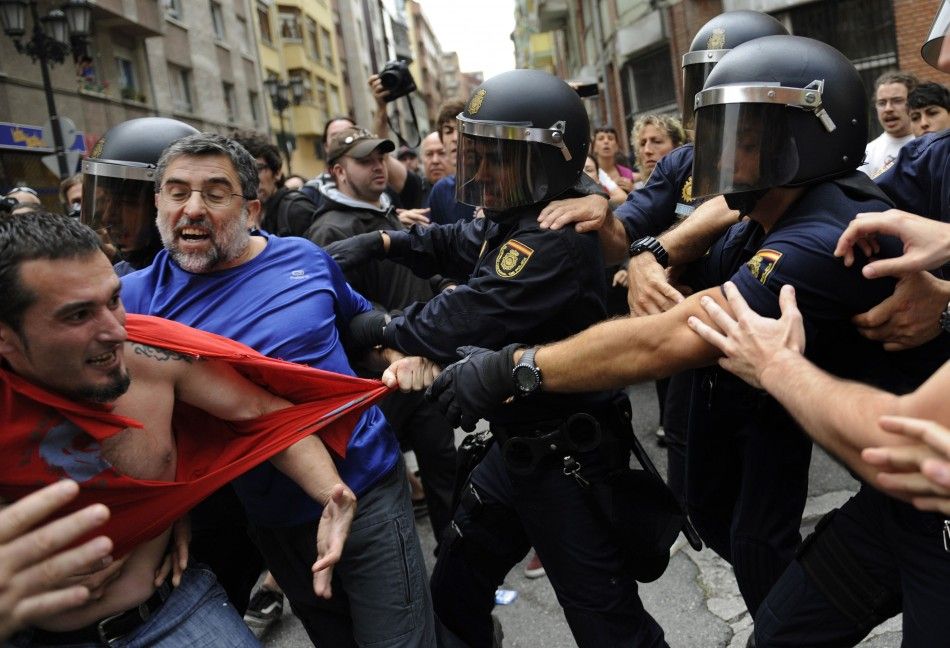

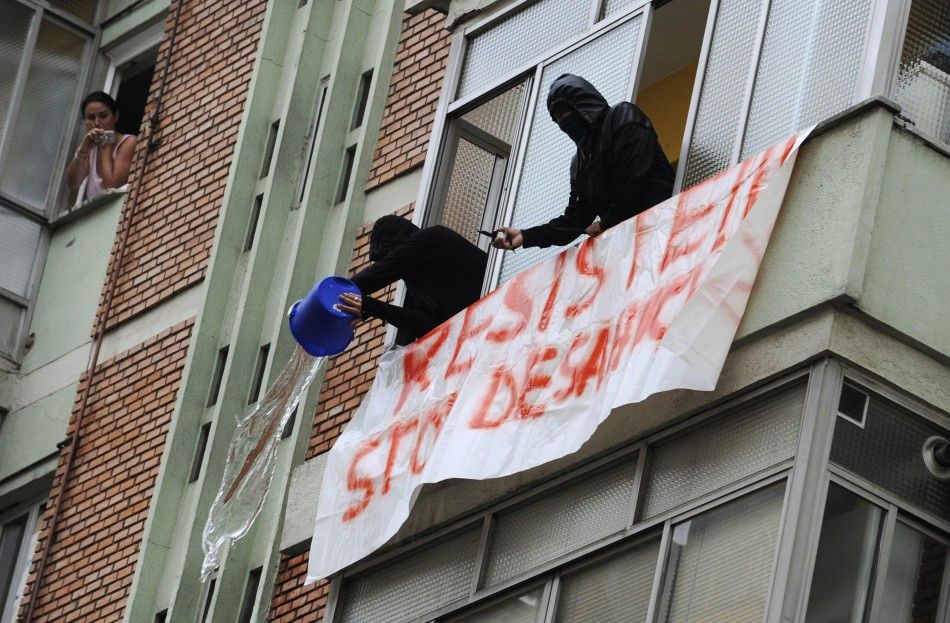
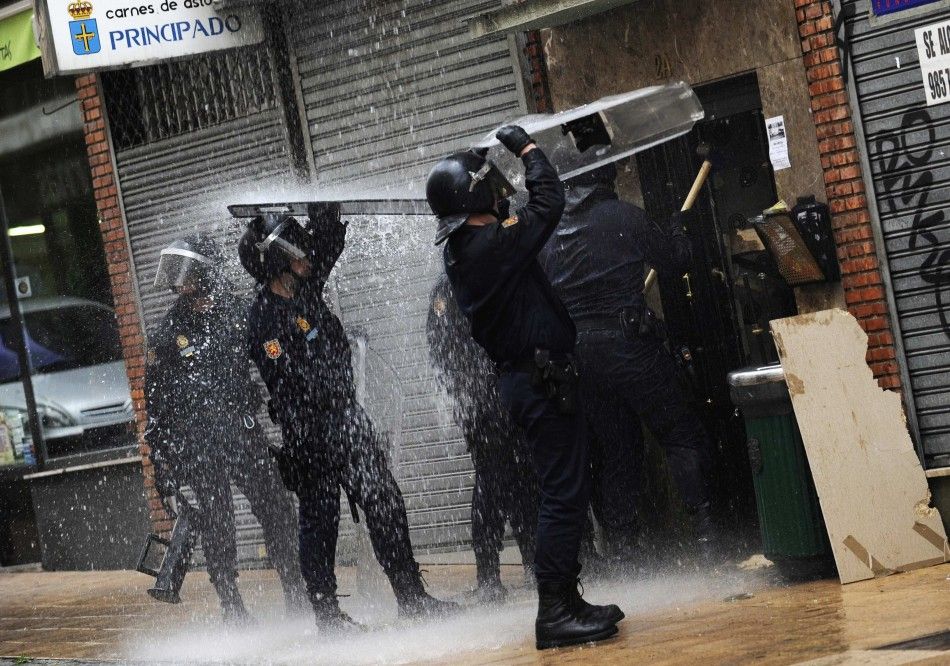

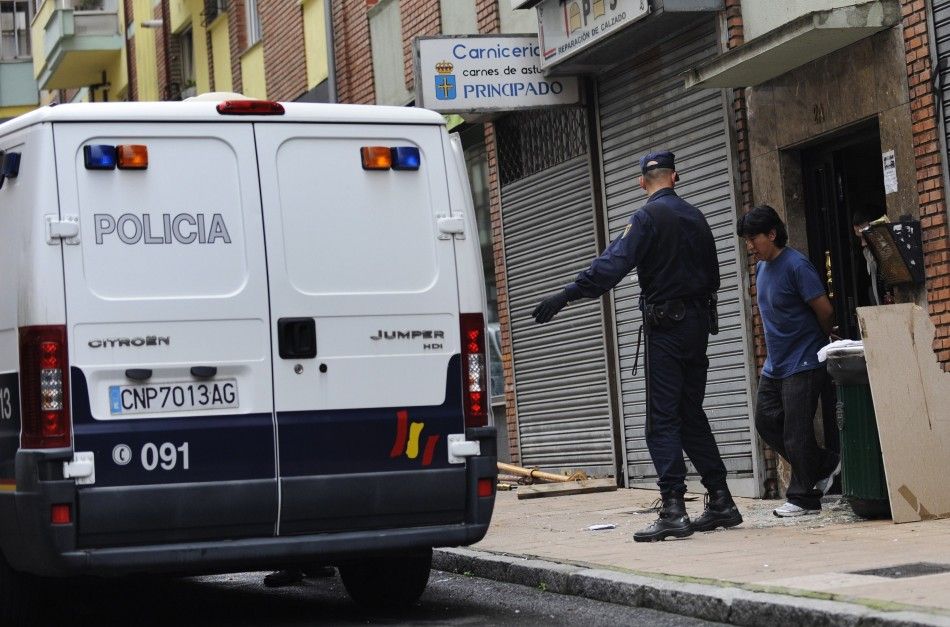
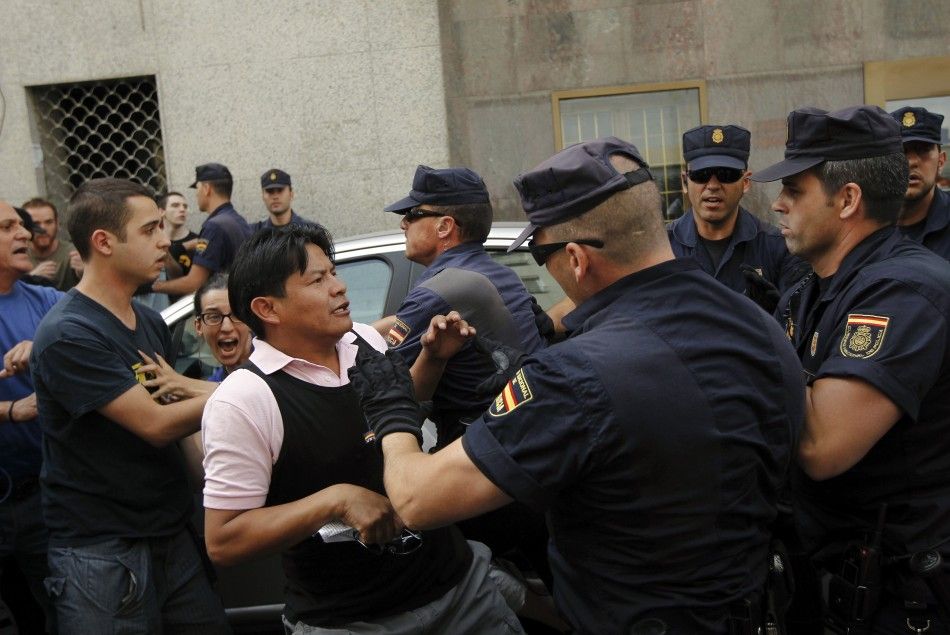
© Copyright IBTimes 2024. All rights reserved.





















